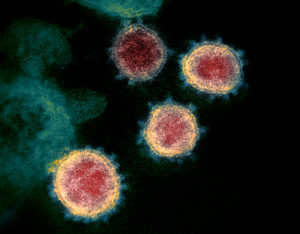 There has been much concern with the persistence and lack of good treatments for persons with long COVID. This is when symptoms persist long-term (for months or years!) after the initial COVID-19 infection, even if the infection seemed pretty mild at the time. The symptoms can be quite severe, even with multiorgan effects, and result in disability.
There has been much concern with the persistence and lack of good treatments for persons with long COVID. This is when symptoms persist long-term (for months or years!) after the initial COVID-19 infection, even if the infection seemed pretty mild at the time. The symptoms can be quite severe, even with multiorgan effects, and result in disability.
This is why the possibility of those with long COVID getting the COVID vaccine and showing quick improvement in their symptoms is great news. However, there is debate over how many people with long COVID are actually helped - a review of studies looking at this suggest under 20%. However, the good news is that most people with long COVID slowly improve over time, even without any post COVID vaccines.
Please note: Vaccines reduce the chance of developing long COVID by about half among people who are vaccinated before they develop covid-19.
Excerpts from Medical Xpress: Vaccines may lessen long COVID for some, but more study is needed
Vaccination after infection with SARS-CoV-2, the virus responsible for COVID-19, is associated with a decrease in the likelihood of long COVID symptoms, finds a large study of U.K. adults published today by the BMJ .
They stress that causality cannot be inferred from this observational evidence, but say vaccination "may contribute to a reduction in the population health burden of long COVID, at least in the first few months after vaccination."
Vaccines against COVID-19 are effective at reducing rates of coronavirus infection, transmission, hospital admission, and death. Evidence also suggests that long COVID is reduced in those who are infected after vaccination, but the effectiveness of vaccination on pre-existing long COVID is less clear.
The latest survey by the U.K.'s Office for National Statistics (ONS) shows that 44% of people who report long COVID have had symptoms for at least one year, two thirds of whom report symptoms severe enough to limit their day-to-day activities.
They drew on ONS data for 28,356 adults aged 18–69 years (average age 46; 56% women; 89% white) who received at least one COVID-19 vaccine dose after testing positive for SARS-CoV-2 infection.
They then tracked the presence of long COVID symptoms over a seven month follow-up period (February to September 2021). Long COVID symptoms of any severity were reported by 6,729 participants (24%) at least once during follow-up.
A first vaccine dose was associated with an initial 13% decrease in the odds of long COVID, but it is unclear from the data whether this improvement was sustained over the following 12 weeks, until a second vaccine dose was given. Receiving a second vaccine dose was associated with a further 9% decrease in the odds of long COVID, and this improvement was sustained at least over an average follow-up of nine weeks.
Similar results were also found when the focus was on long COVID severe enough to result in limitation of day-to-day activities.
As such, the researchers say: "Our results suggest that vaccination of people previously infected may be associated with a reduction in the burden of long COVID on population health, at least in the first few months after vaccination."
Original BMJ Editorial: Are vaccines a potential treatment for long covid?
